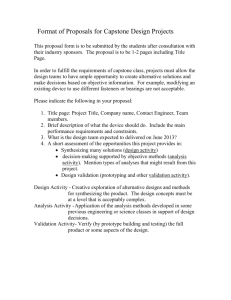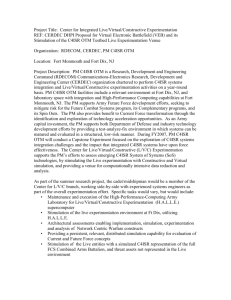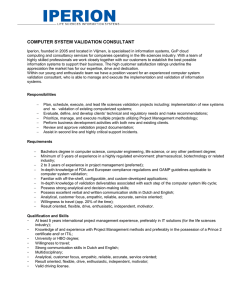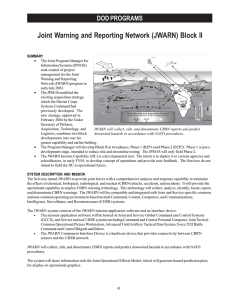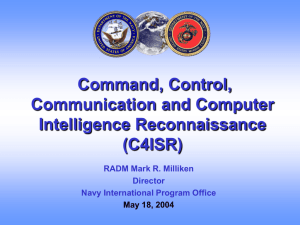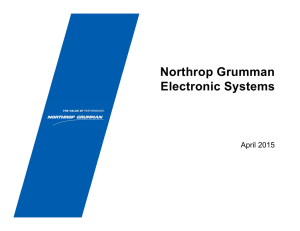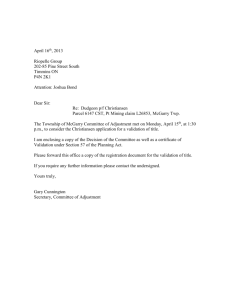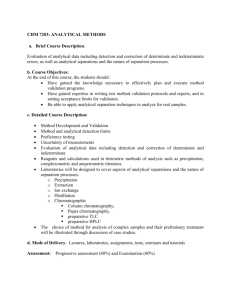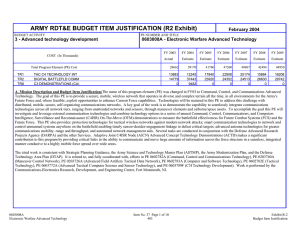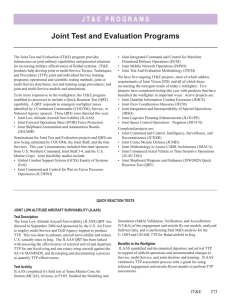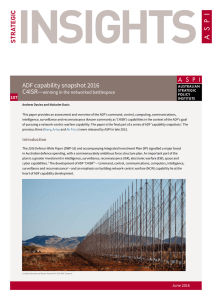Joint Methodology to Assess C4ISR Architecture (JMACA) JOINT TEST & EVALUATION
advertisement
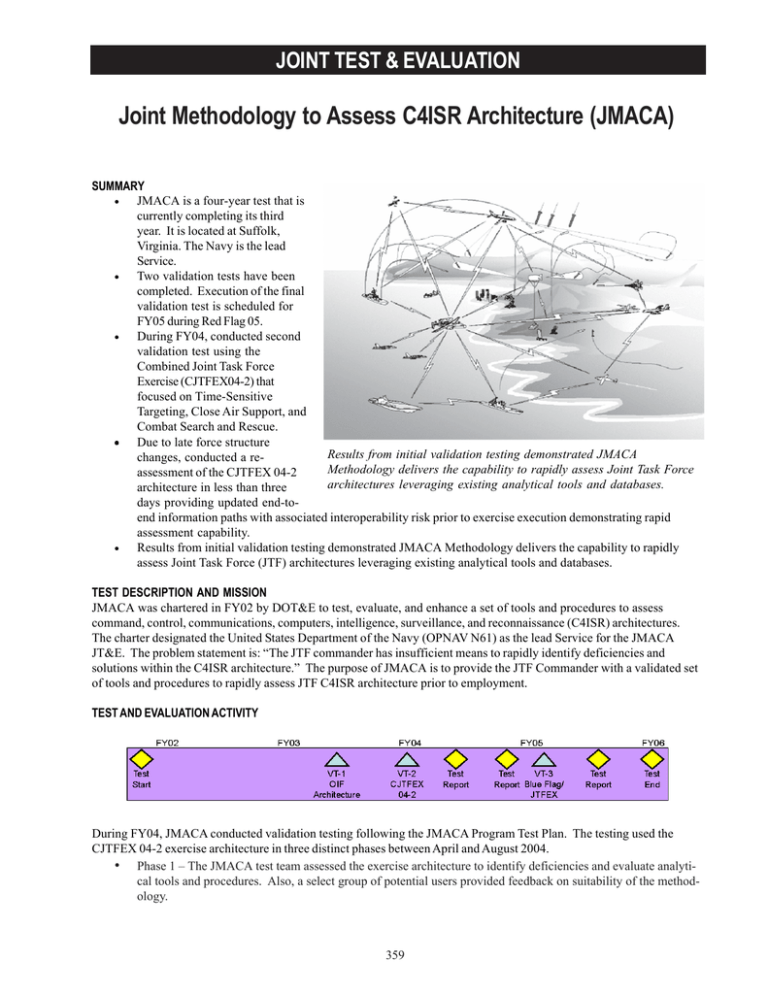
JOINT TEST & EVALUATION Joint Methodology to Assess C4ISR Architecture (JMACA) SUMMARY • JMACA is a four-year test that is currently completing its third year. It is located at Suffolk, Virginia. The Navy is the lead Service. • Two validation tests have been completed. Execution of the final validation test is scheduled for FY05 during Red Flag 05. • During FY04, conducted second validation test using the Combined Joint Task Force Exercise (CJTFEX04-2) that focused on Time-Sensitive Targeting, Close Air Support, and Combat Search and Rescue. • Due to late force structure Results from initial validation testing demonstrated JMACA changes, conducted a reMethodology delivers the capability to rapidly assess Joint Task Force assessment of the CJTFEX 04-2 architectures leveraging existing analytical tools and databases. architecture in less than three days providing updated end-toend information paths with associated interoperability risk prior to exercise execution demonstrating rapid assessment capability. • Results from initial validation testing demonstrated JMACA Methodology delivers the capability to rapidly assess Joint Task Force (JTF) architectures leveraging existing analytical tools and databases. TEST DESCRIPTION AND MISSION JMACA was chartered in FY02 by DOT&E to test, evaluate, and enhance a set of tools and procedures to assess command, control, communications, computers, intelligence, surveillance, and reconnaissance (C4ISR) architectures. The charter designated the United States Department of the Navy (OPNAV N61) as the lead Service for the JMACA JT&E. The problem statement is: “The JTF commander has insufficient means to rapidly identify deficiencies and solutions within the C4ISR architecture.” The purpose of JMACA is to provide the JTF Commander with a validated set of tools and procedures to rapidly assess JTF C4ISR architecture prior to employment. TEST AND EVALUATION ACTIVITY During FY04, JMACA conducted validation testing following the JMACA Program Test Plan. The testing used the CJTFEX 04-2 exercise architecture in three distinct phases between April and August 2004. • Phase 1 – The JMACA test team assessed the exercise architecture to identify deficiencies and evaluate analytical tools and procedures. Also, a select group of potential users provided feedback on suitability of the methodology. 359 JOINT TEST & EVALUATION • Phase 2 – The JMACA test team collected data in the exercise observing the end-to-end information paths between combat units. • Phase 3 – Using Joint and Service system test beds, the JMACA test team collected data on selected end-to-end information paths not observed in the exercise. TEST AND EVALUATION ASSESSMENT Results from validation testing indicate the methodology successfully demonstrated the rapid, automated mining of Joint C4ISR system data for 100 percent of selected combat units of the CJTFEX 04-2 exercise supporting architecture development and analysis. In addition, the methodology extracted over 85 percent of associated system risk data for the C4ISR systems of selected exercise combat units quantifying system and information path interoperability risk supporting communications planning. The JMACA team also audited on-site 100 percent of the selected combat unit C4ISR systems for completeness and accuracy of the Joint and Service authoritative data sources providing confidence in automated data mining and subsequent analysis. 360
